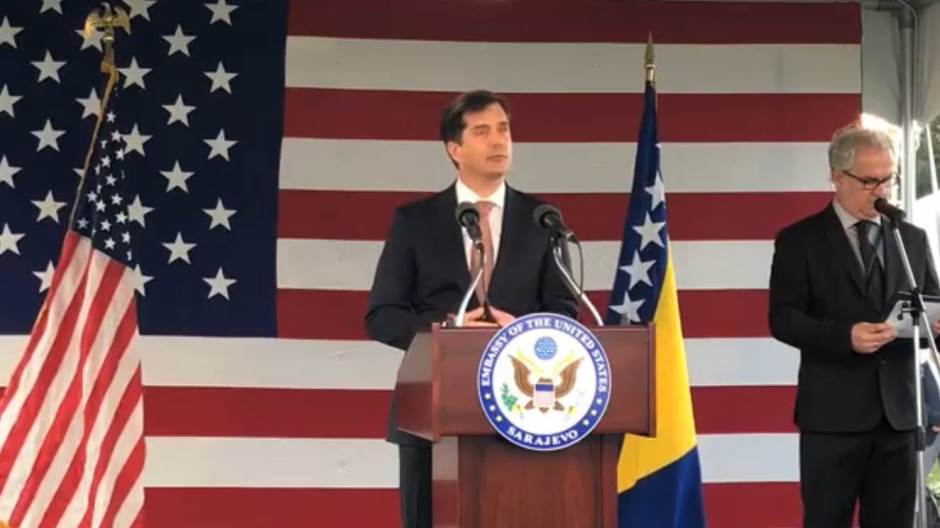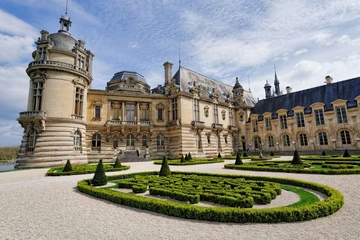
It is time for the people of Herzegovina to benefit from legitimate business but, sadly, political leaders in that part of the country continue to block reforms that would improve the business climate, the US Ambassador to Bosnia, Eric Nelson, wrote on his blog on Tuesday referring to the dire situation ‘Aluminij d.d. Mostar’, Bosnia’s sole aluminium producer, has found itself in.
The company, which employs some 900 people, has been recording losses for years, which now amount to 400 Bosnian Marks (some €204 million). Its electricity debt end of June this year was some 293 million Bosnian Marks (about €150 million).
Although management and workers warned that should electricity be shut off, it would effectively mean the end of the company as the liquid aluminum in the electrolytic cells would “freeze up,” which would cost about €90,000 per cell to make them work again. Aluminij has 256 electrolytic cells.
But this is exactly what happened the night between Tuesday and Wednesday last week.
However, according to the chairman of its Supervisory Board, Zdenko Klepic, the company was saved from bankruptcy for another six months by a Friday decision made at a telephone session of the government of the Federation (FBiH).
Nelson wrote about the situation in a blog post titled ‘Time to Unchain the Real Economic Potential of Herzegovina’:
“As headlines describe the demise of Aluminij Mostar, our hearts go out to the workers who depended on the company for their livelihood, and who strived to keep the company operating against all odds. The Federation and Cantonal governments should do as much as they can to soften the blow to those families.
Although the company faced difficult market conditions, with high alumina and electricity costs, there are additional reasons for its demise. The painful truth is that Aluminij has been slowly run into the ground since the company's post-war revival in 1997 as its purpose became political party benefit, not the benefit of the workers and economy of Herzegovina. Now we are seeing the logical consequences of that mismanagement, and the workers and their families are paying the price. This is not the first time that politicians have been allowed to bankrupt a business and it will not be the last, unless something changes. By serving political masters rather than adapting to a difficult market, Aluminij’s managers created the current situation in which workers have suddenly lost the jobs that they and their families depend on.
This will be a difficult time for the many people in Herzegovina who depended on Aluminij and related industries for their livelihood. But the people of Herzegovina are resilient, and the economy of Herzegovina has many areas of promise: its farmlands, groves and vineyards; its beautiful cities, villages, rivers and mountains; and most of all, its talented people who are ready for good jobs that don’t demand a fat envelope or party membership as an entry price, but instead reward people’s efforts. BiH’s tourism sector is already growing 13 percent per year, yet Mostar’s airport is practically idle. Herzegovina’s beauty takes several days to appreciate, yet most visitors come for just one day, to the benefit of bus operators from Croatia, and not to the hotels and guesthouses of BiH. If the Mostar airport were freed from party control and operated under a concession agreement like most airports in the region, it could easily attract many more flights and tourists. The income from tourism in BiH was 1.4 billion KM in 2017, according to the UN World Tourism Organization. It can be – and should be – even more.
It’s time for Herzegovina and its people to benefit from legitimate business. Sadly, its leaders in particular continue to block reforms and steps to improve the business climate. Instead of blocking progress, they should be in the vanguard of efforts to cut labor contributions, boost efficiency of tax collection to reduce the gray economy, invest in power generation, and take other steps to move Herzegovina towards faster economic growth.
This story is repeated over and over again across BiH, to the detriment of the talented people of this country. The IMF tallied around 550 state-owned enterprises (SOEs) in BiH, making up more than 20 percent of GDP. Most of these companies are in poor financial shape, accounting for nearly 70 percent of public sector arrears for tax and social contributions. Most of them have no sensible reason for being owned by the government other than making political party patronage possible. Under political party control, the workers at these enterprises and the BiH economy are also vulnerable to failure. The remedy is full transparency on the financial state and debt of all SOEs, and full depoliticization including introduction of professional – not political – managers. While some, such as utilities, should likely remain in public hands, many SOEs need the management expertise brought by concession or public-private partnership agreements or the investment infusions brought by a well-managed sale to a private partner with experience in that industry. New jobs, new investment, new technology, and new growth will follow.
Let’s waste no time improving the business climate so companies can start up and create jobs; let's also work together to improve the education system to produce graduates able to take on the jobs of the twenty-first century economy. The technology parks in Mostar, and many talented young people who are building careers in IT, show this to also be a promising sector for growth. Boost real economic growth in Herzegovina, so young people stop emigrating to find opportunity and escape nationalist rhetoric. The people of BiH deserve better than business as usual.”
Kakvo je tvoje mišljenje o ovome?
Učestvuj u diskusiji ili pročitaj komentare





 Srbija
Srbija
 Hrvatska
Hrvatska
 Slovenija
Slovenija



























































